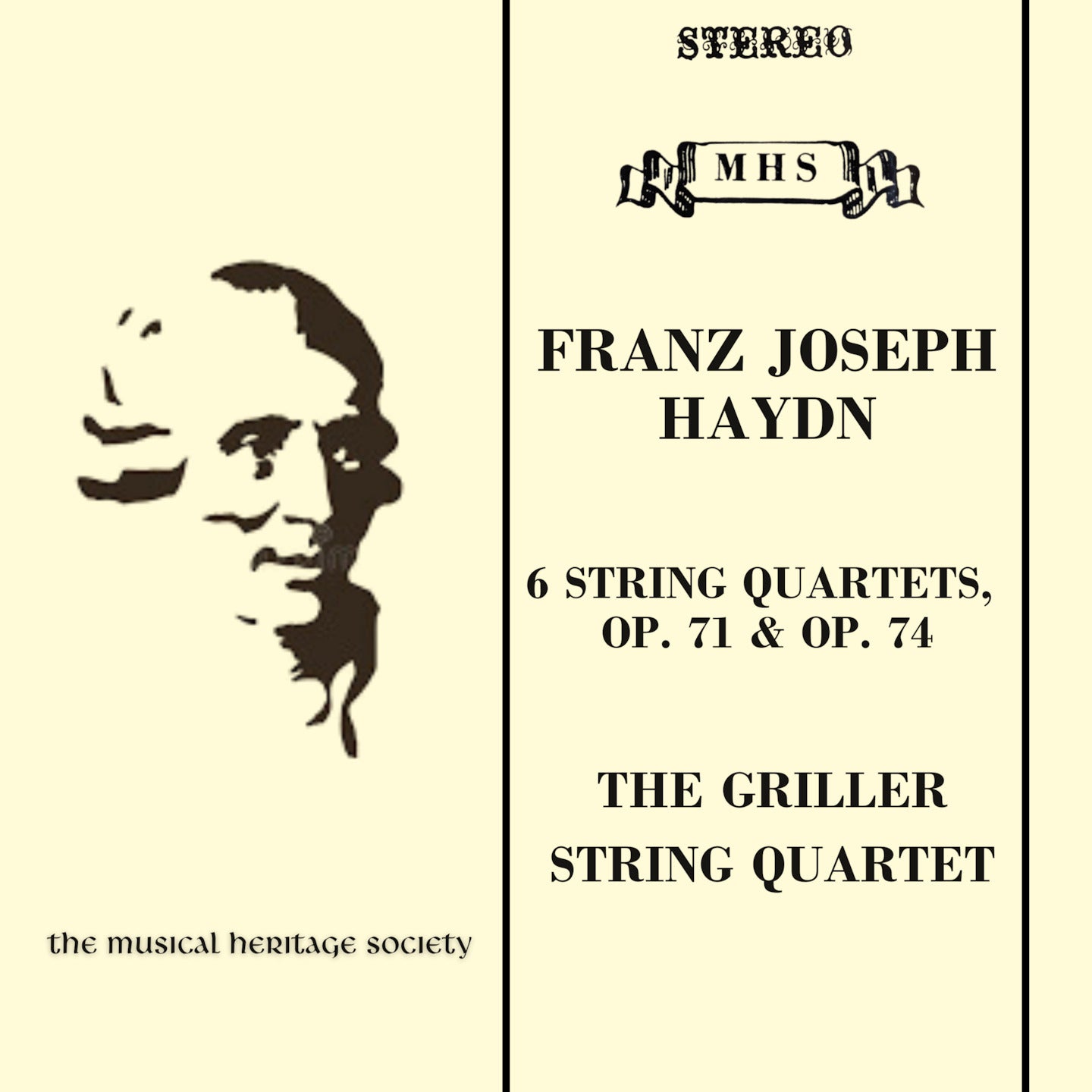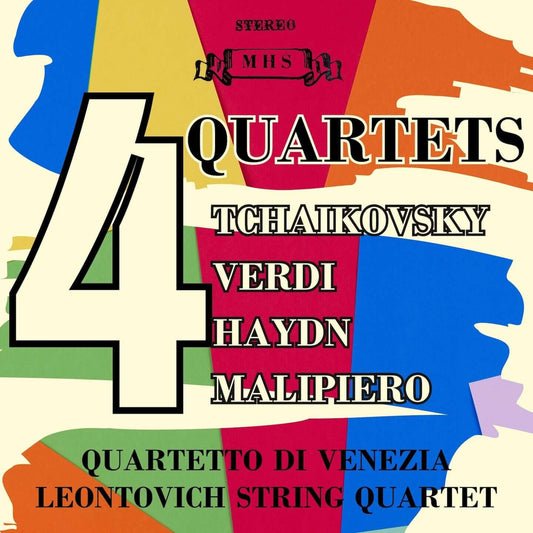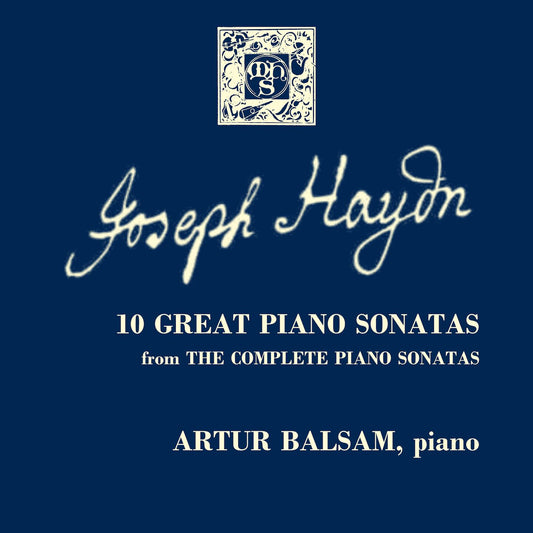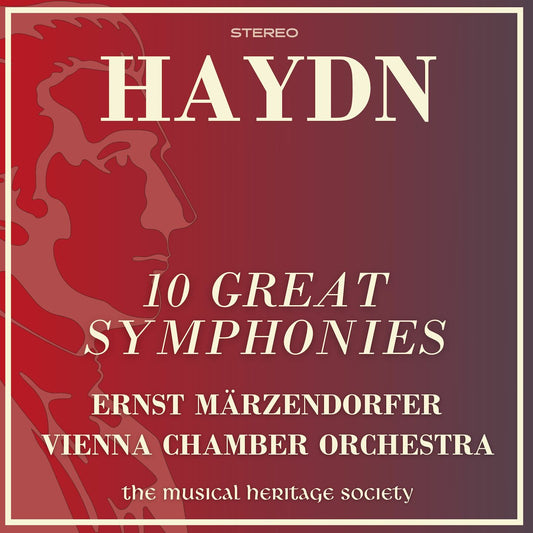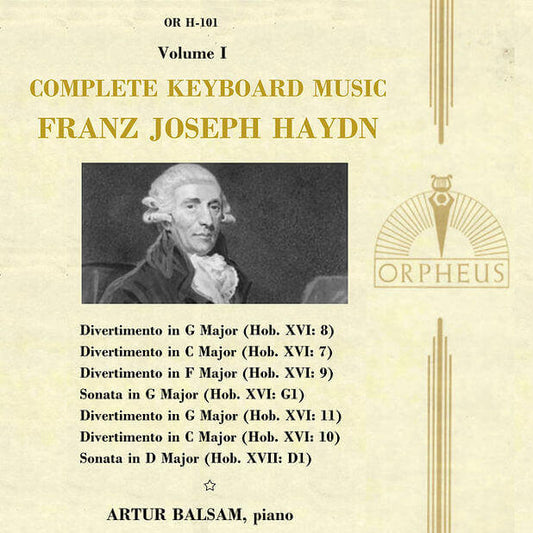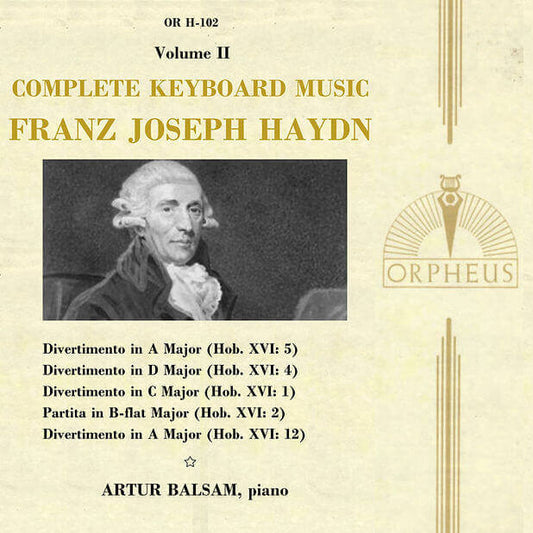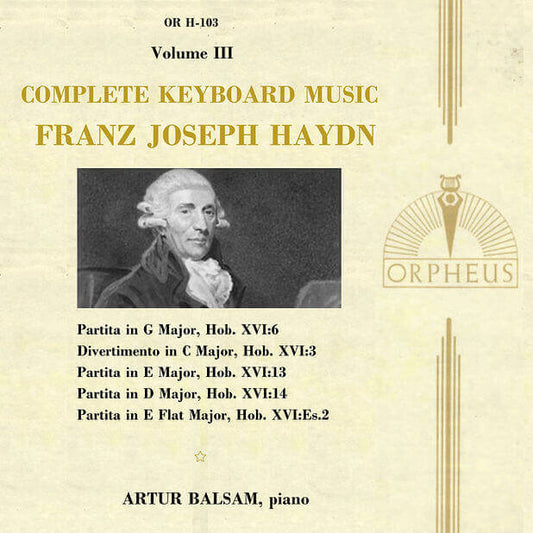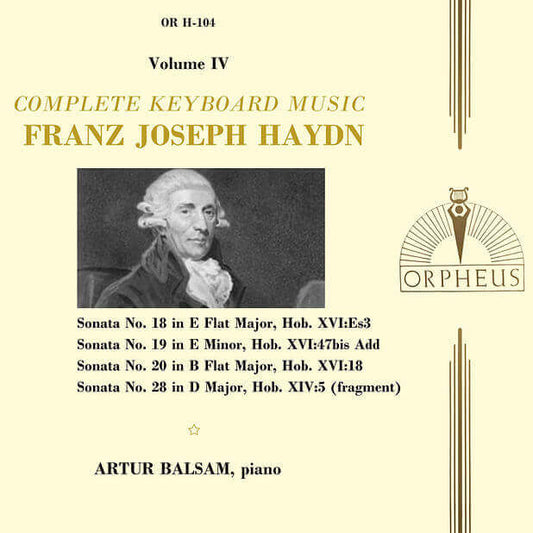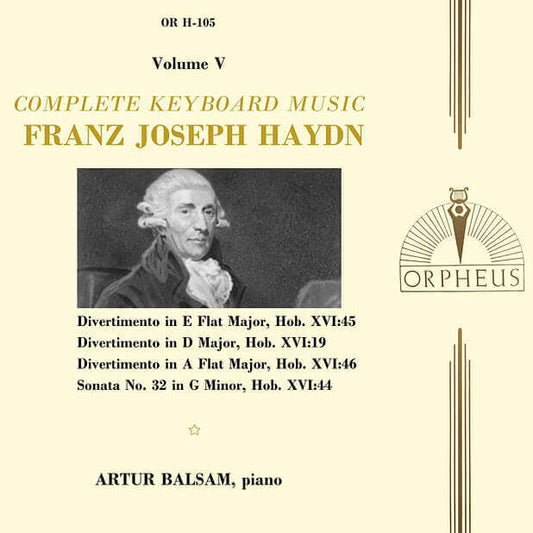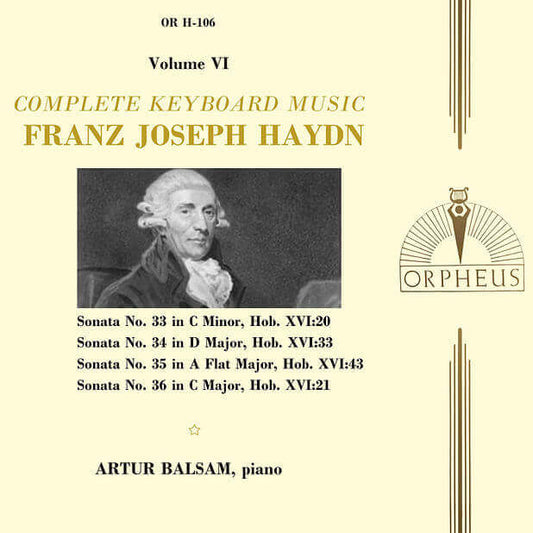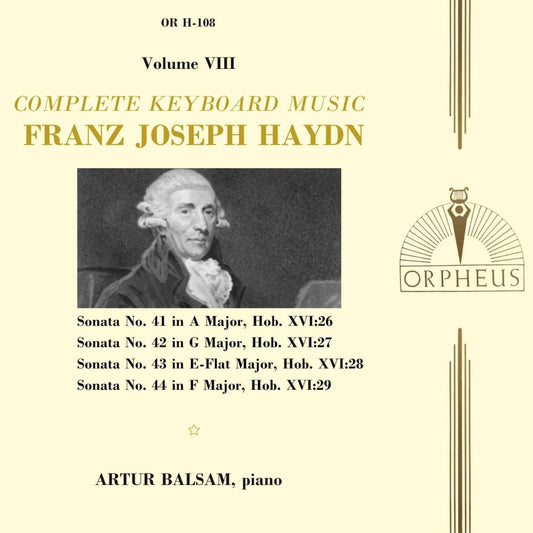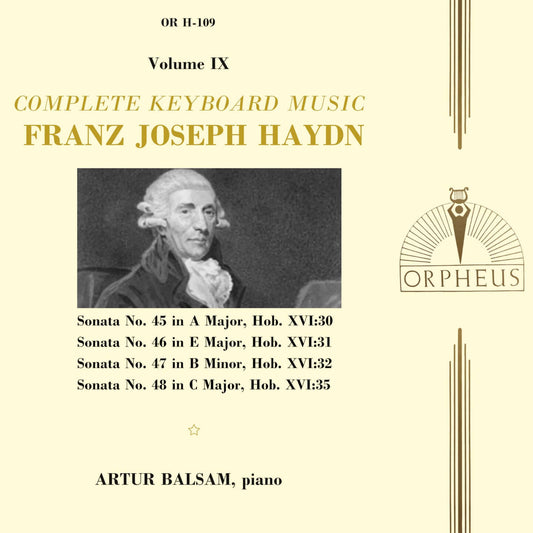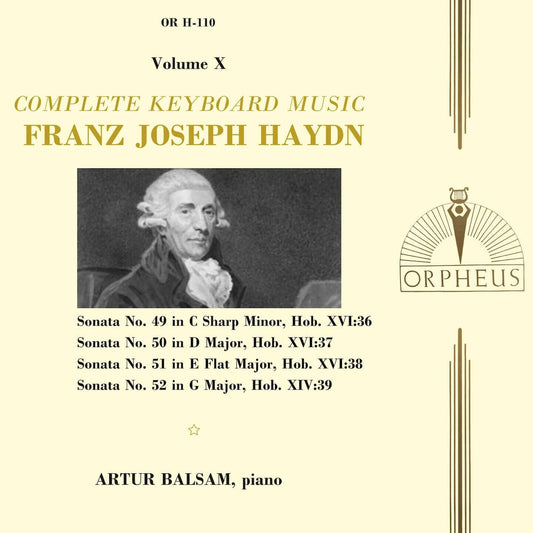1
/
of
1
FRANZ JOSEPH HAYDN (1732-1809)
Haydn: Six String Quartets, Op. 71 & 74 - Griller String Quartet
Haydn: Six String Quartets, Op. 71 & 74 - Griller String Quartet
There is much that is captivating in these mature but alive performances. The considered approach to tonal balance was exceptional, the questions of internal and external projection had clearly been successfully resolved; characterisation of movements and their relation to the whole Quartet (especially the Op 74) is undeniably impressive. --MusicWeb International
Regular price
$9.98
Regular price
$9.98
Sale price
$9.98
Unit price
/
per
$4.99
MHS
MHS EXCLUSIVE DIGITAL DOWNLOAD
play_circle_outline
Quartet In B Flat Major, Op. 71 No. 1 1. Allegro
4:58
add_shopping_cart
$0.99
play_circle_outline
Quartet In B Flat Major, Op. 71 No. 1 2. Adagio
4:16
add_shopping_cart
$0.99
play_circle_outline
Quartet In B Flat Major, Op. 71 No. 1 3. Menuetto (Allegretto)
3:37
add_shopping_cart
$0.99
play_circle_outline
Quartet In B Flat Major, Op. 71 No. 1 4. Vivace
3:38
add_shopping_cart
$0.99
play_circle_outline
Quartet In D Major, Op. 71 No. 2 1. Adagio
4:37
add_shopping_cart
$0.99
play_circle_outline
Quartet In D Major, Op. 71 No. 2 2. Allegro
6:02
add_shopping_cart
$0.99
play_circle_outline
Quartet In D Major, Op. 71 No. 2 3. Menuetto (Allegro)
2:01
add_shopping_cart
$0.99
play_circle_outline
Quartet In D Major, Op. 71 No. 2 4. Allegretto
3:00
add_shopping_cart
$0.99
play_circle_outline
Quartet In E Flat Major, Op. 71 No. 3 1. Vivace
4:55
add_shopping_cart
$0.99
play_circle_outline
Quartet In E Flat Major, Op. 71 No. 3 2. Andante Con Moto
4:30
add_shopping_cart
$0.99
play_circle_outline
Quartet In E Flat Major, Op. 71 No. 3 3. Menuetto
3:21
add_shopping_cart
$0.99
play_circle_outline
Quartet In E Flat Major, Op. 71 No. 3 4. Vivace
3:32
add_shopping_cart
$0.99
play_circle_outline
Quartet In C Major, Op. 74 No. 1 1. Allegro Moderato
5:18
add_shopping_cart
$0.99
play_circle_outline
Quartet In C Major, Op. 74 No. 1 2. Andantino Grazioso
5:01
add_shopping_cart
$0.99
play_circle_outline
Quartet In C Major, Op. 74 No. 1 3. Menuetto (Allegretto)
4:39
add_shopping_cart
$0.99
play_circle_outline
Quartet In C Major, Op. 74 No. 1 4. Presto
4:00
add_shopping_cart
$0.99
play_circle_outline
Quartet In F Major, Op. 74 No. 2 1. Allegro Spirituoso
5:38
add_shopping_cart
$0.99
play_circle_outline
Quartet In F Major, Op. 74 No. 2 2. Andante Grazioso
5:37
add_shopping_cart
$0.99
play_circle_outline
Quartet In F Major, Op. 74 No. 2 3. Menuetto (Allegro)
4:00
add_shopping_cart
$0.99
play_circle_outline
Quartet In F Major, Op. 74 No. 2 4. Presto
4:06
add_shopping_cart
$0.99
play_circle_outline
Quartet In G Minor, Op. 74 No. 3 1. Allegro
3:17
add_shopping_cart
$0.99
play_circle_outline
Quartet In G Minor, Op. 74 No. 3 2. Largo Assai
5:17
add_shopping_cart
$0.99
play_circle_outline
Quartet In G Minor, Op. 74 No. 3 3. Menuetto (Allegretto)
3:59
add_shopping_cart
$0.99
play_circle_outline
Quartet In G Minor, Op. 74 No. 3 4. Allegro Con Brio
3:55
add_shopping_cart
$0.99
The three string quartet contained in Haydn's Op. 71 are valued by those who know them. Performers cherish a few of the movements as dearly as anything in Haydn, and listeners who like chamber music find them more often than not a delight. Yet truth to tell, as a unit the opus is less generally known than the neighboring Op. 74 set of three, or the Op. 76 set of six. Characteristically, Tovey prefaced his notes to the Op. 71 quartets with the off-hand observation that they are "three neglected masterpieces." They are not, of course, entirely neglected; but there is enough of truth here to be worth wondering about. Some considerable part of the answer has to do, one suspects, with the vagaries of publication. During the 18th century it was common practice to publish in collections, especially where the music was designed for private use (e.g. chamber music, keyboard pieces, etc.) or for some theoretical and/or dialectic purposes. Thus Bach's partitas an I his preludes and fugues were issued in sets, and so likewise the string quartets of Haydn. The encyclopedia style of approach to all areas of human knowledge, so characteristic a trait of the 18th century Enlightenment, is background sufficient to explain Bach's interest in all-encompassing collections such as his Art of Fugue or his Musical Offering. In Haydn's case, as in general with string quartets of the period, a publisher may well have had in mind little beyond the needs of the thoroughly competent amateurs who dominated the market for 18th century chamber music. For a do-it-yourself evening of chamber music at home, players, then as now, find a single collection of six quartets a better bargain, more serviceable to play through and pick from, than six publications each to be purchased separately.
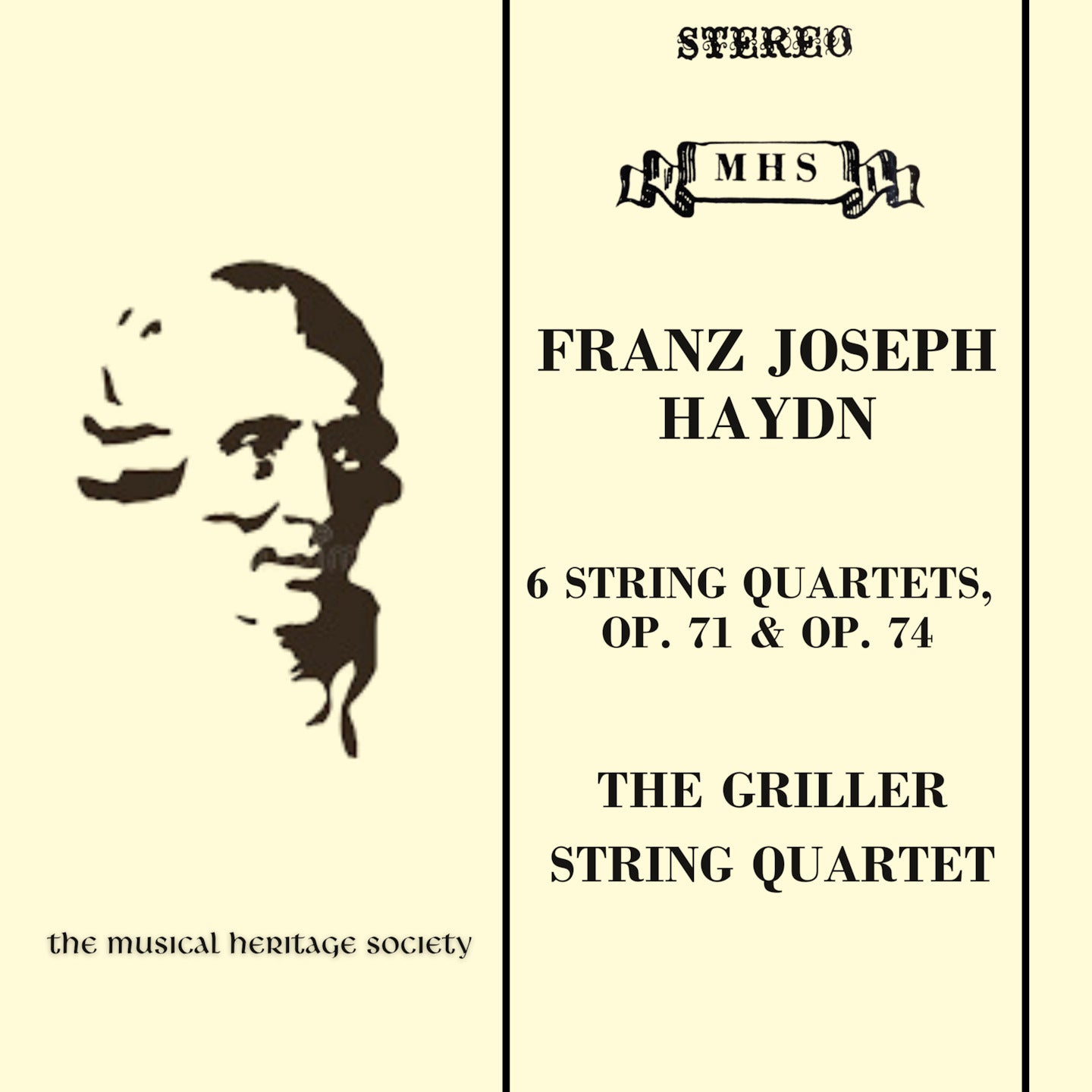
When William Primrose recorded the Mozart Quintets with the Griller Quartet – classic performances also available on Vanguard Classics 08 8024 71 and 08 8025 71 – he was, the story goes, not inclined to turn down the challenge of a couple of fast tempos. When it came to that kind of musical joust Primrose could be indomitable - as he was to show when, for example, partnering Heifetz in a memorably unmoving performance of K364. Here the Grillers are on their own, in California in 1959, eight months before those Primrose sessions and two years before the suicide of violist Philip Burton which led to the instant disbanding of a quartet that had been together, unchanged in personnel since its formation in 1928, thirty years before. I would however take issue with the biographical note – fine and embrionically successful they may have been but the Griller Quartet was certainly not the leading British Quartet by 1932, an honour that was held by the soon-to-disband but still active London Quartet.
There is much that is captivating in these mature but alive performances. The considered approach to tonal balance was exceptional, the questions of internal and external projection had clearly been successfully resolved; characterisation of movements and their relation to the whole Quartet (especially the Op 74) is undeniably impressive. There are some moments of questionable speed relation but otherwise these are challengingly lithe performances animated by superb rhythmic and tonal nuance. The courtly introduction to Op 71/1 and its naïve promenade reveals the tonal conformity of Griller and second violinist Jack O’Brien. If the old saw about judging a Quartet by its Second Violin has any truth then O’Brien is certainly an estimable member of the higher echelon of players. They find a simplicity and what I think it would be best to characterise as an affectionate distance in the Adagio of the same quartet. The finale is fluent and commensurately elegant. They meet the challenge of the downward octave leap in the opening movement of the D Major Quartet with implacable vigour and commitment though maybe the succeeding Andante cantabile lacks something of repose; the final movements are winningly witty however. There’s real and sustained delicacy in the playing of the Andante con moto of the third in the set of Op 71 with some glitteringly pirouetting work from Griller from 1’50 onwards. In the first of the Op 74 set Burton maintains the octave pedal note with absolute clarity and this is generally playing of superior instrumental technique, colour and also requisite seriousness. The dramatic spine of Colin Hampton’s cello line runs throughout the Allegro sprituoso of the Op 74/2 work – complete with internal clarity from all four voices. Especially admirable is the beautiful slow movement with its harmonic shifts and patterns. How well the violins scrupulously observe dynamic markings in the Minuet of the same work, as they take on the little trio section’s twists with real aplomb. Griller is elegance itself in the concluding presto assuming a soloistic part with convincing ease. The last of the set, the famous Rider Quartet is of a piece; the expressive diminuendos of the opening movement and the sustaining of the solemn slow movement herald a performance of sympathetic proportion, of high excitement balanced by considered gravity, of Haydnesque proprieties acknowledged and observed. A wise and humane way to end these still invigorating discs.
Jonathan Woolf, MusicWeb International
11/29/2024

Performers
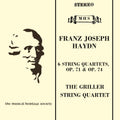
00:00
/
00:00
•
skip_previous
play_circle_outline
pause_circle_outline
skip_next
Also Available from FRANZ JOSEPH HAYDN (1732-1809)
-
Members Save 50% DIGITAL DOWNLOAD with LINER NOTES
4 Quartets By Tchaikovsky, Haydn, Verdi & Malipiero - Leo...
ExploreRegular price $9.98Regular priceUnit price / per$9.98Sale price $9.98 -
Members Save 50% MHS EXCLUSIVE DIGITAL DOWNLOAD
HAYDN: 10 GREAT PIANO SONATAS (from The MHS Complete Hayd...
ExploreRegular price $9.99Regular priceUnit price / per$9.99Sale price $9.99 -
Members Save 50% MHS EXCLUSIVE DIGITAL DOWNLOAD
HAYDN: 10 GREAT SYMPHONIES - Ernst Marzendorfer, Vienna C...
ExploreRegular price $9.98Regular priceUnit price / per$9.98Sale price $9.98 -
STREAMING
Haydn: Complete Keyboard Music, Vol. 01 - Artur Balsam
ExploreRegular price $0.00Regular priceUnit price / per -
STREAMING
Haydn: Complete Keyboard Music, Vol. 02 - Artur Balsam
ExploreRegular price $0.00Regular priceUnit price / per -
STREAMING
Haydn: Complete Keyboard Music, Vol. 03 - Artur Balsam
ExploreRegular price $0.00Regular priceUnit price / per -
STREAMING
Haydn: Complete Keyboard Music, Vol. 04 - Artur Balsam
ExploreRegular price $0.00Regular priceUnit price / per -
STREAMING
Haydn: Complete Keyboard Music, Vol. 05 - Artur Balsam
ExploreRegular price $0.00Regular priceUnit price / per -
STREAMING
Haydn: Complete Keyboard Music, Vol. 06 - Artur Balsam
ExploreRegular price $0.00Regular priceUnit price / per -
Members Save 50% DIGITAL DOWNLOAD with LINER NOTES
Haydn: Complete Keyboard Music, Vol. 08 - Artur Balsam
ExploreRegular price $9.98Regular priceUnit price / per$9.98Sale price $9.98 -
Members Save 50% DIGITAL DOWNLOAD with LINER NOTES
Haydn: Complete Keyboard Music, Vol. 09 - Artur Balsam
ExploreRegular price $7.98Regular priceUnit price / per$7.98Sale price $7.98 -
Members Save 50% DIGITAL DOWNLOAD with LINER NOTES
Haydn: Complete Keyboard Music, Vol. 10 - Artur Balsam
ExploreRegular price $7.98Regular priceUnit price / per$7.98Sale price $7.98

